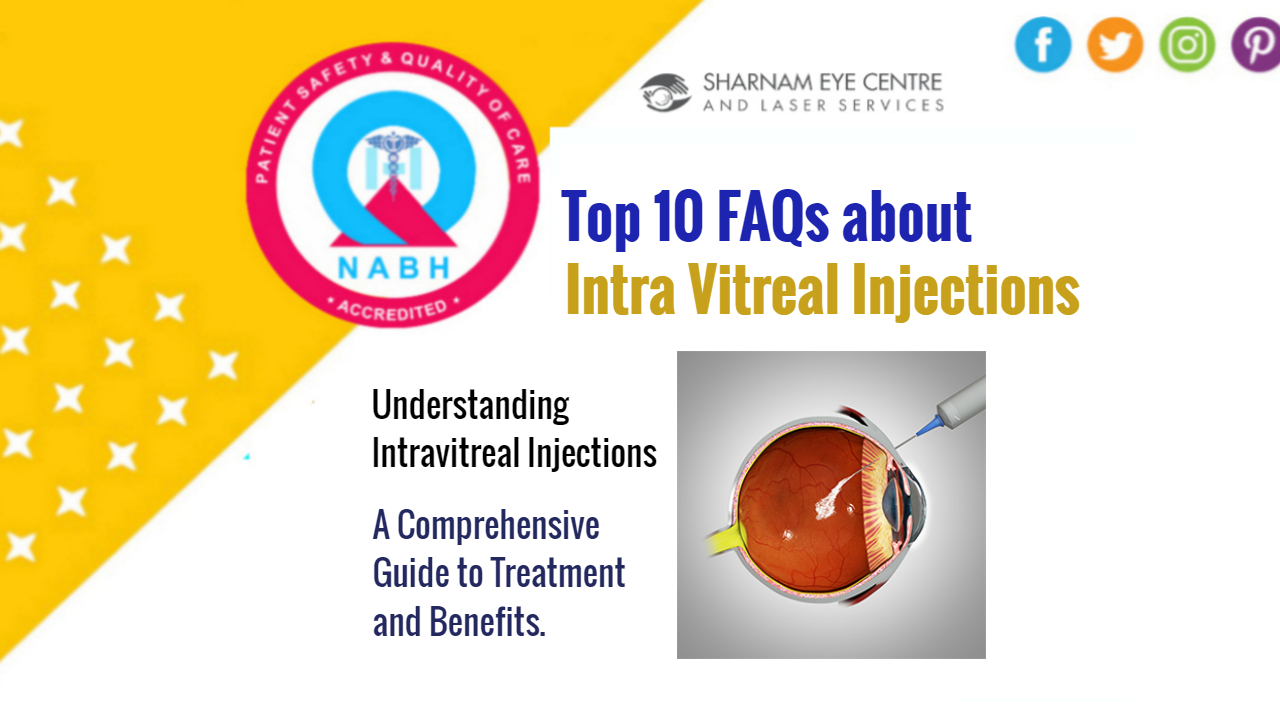Top 10 FAQs about Intra Vitreal Injections: Understanding Intravitreal Injections: A Comprehensive Guide to Treatment and Benefits.
1. What is an Intravitreal Injection?
- It’s a medical procedure where medication is injected into the vitreous, which is the jelly-like substance inside the eye, near the retina.
2. What Conditions are Treated with Intravitreal Injections?
- These injections are primarily used to treat eye diseases such as age-related macular degeneration, diabetic retinopathy, and retinal vein occlusion.
3. How is the Intravitreal Injection Procedure Performed?
- The eye is numbed with drops or an injection, the eye area is cleaned, and then the medication is injected into the vitreous. The procedure is usually quick, lasting only a few minutes.
4. Are Intravitreal Injections Painful?
- Most patients experience little to no pain due to the numbing of the eye, but some might feel pressure or a slight sting.
5. What are the Risks and Side Effects of Intravitreal Injections?
- Possible risks include infection, bleeding, increased eye pressure, cataracts, and in rare cases, retinal detachment.
6. How Effective are Intravitreal Injections?
- Effectiveness varies, but these injections can significantly improve or stabilize vision for many patients, especially when started early in the disease process.
7. How Often Will I Need Intravitreal Injections?
- The frequency depends on the condition and response to treatment. Initially, injections might be monthly, with adjustments based on how the eye responds.
8. What Should I Expect After the Injection?
- Temporary side effects may include redness, floaters, or eye discomfort. Normal activities can usually be resumed shortly after, but your doctor may advise against strenuous activities for a few days.
9. How Should I Prepare for an Intravitreal Injection?
- No specific preparation is usually required, but follow any instructions given by your doctor, such as avoiding certain medications or using antibiotic drops.
10. Are There Alternative Treatments to Intravitreal Injections?
- Alternatives or complementary treatments may include laser therapy, oral medications, or lifestyle changes, depending on the condition being treated.
Always consult with a healthcare provider for information and advice specific to your situation.



